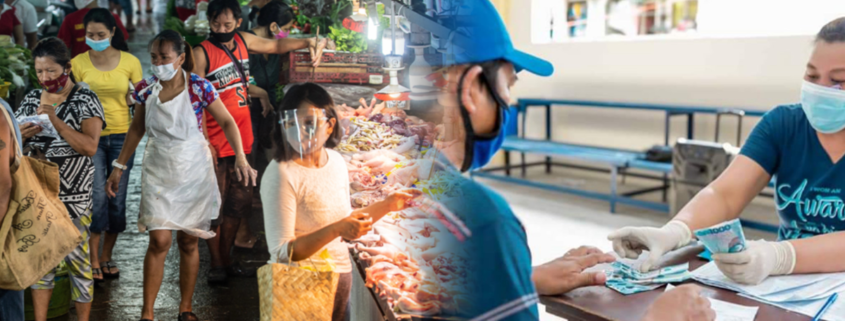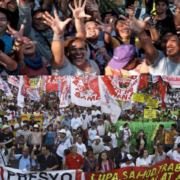Inflation highest in 21 months, NEDA warns of continuing increase
The country’s Inflation rate accelerated to 3.5% in December 2020, driven by the increase in the prices of food non-alcoholic beverages, transport, and restaurant and miscellaneous goods and services, the National Economic Development Authority (NEDA) reported Tuesday.
The inflation rate last month is higher than the 3.3% in November 2020 and the 2.5% in December 2019.
Among the sub-groups, prices of vegetables and meat significantly increased from the previous month, traced to lower production following the damage caused by previous typhoons, the NEDA said.
The increase in the prices of meat inched up for the third consecutive month owing to the decline in domestic swine production due to the African Swine Fever (ASF), the agency added.
NEDA said that country’s average inflation rate for 2020 is at 2.6%, higher than the 2.5% the previous year but within the 2% to 4% target range of the government.
Acting socioeconomic planning secretary Karl Kendrick Chua blamed the coronavirus pandemic and the string of calamities that hit the country for the increase.
“The imminent threat of natural calamities every year highlights the need for long-term solutions such as infrastructure investments that would improve flood control, water management and irrigation systems, reforestation, climate-resilient production and processing facilities, among others,” Chua said.
Chua warned that the ongoing La Niña weather phenomenon may continue to adversely affect the economy.
Inflation hardest for the poor
Research group IBON noted that the December 2020 inflation rate is the highest inflation in 21 months, and even higher for the poorest 30% of Filipino households at 4.3%.
IBON said that even Philippine Statistics Authority (PSA) data show that the December inflation rate is the highest since March 2019.
“The prices of food and non-alcoholic beverages rose the fastest at 4.8% last month from 4.3% in November 2020. Inflation in health and transport was also higher at 2.6% and 8.3%, respectively,” IBON reported.
“The higher December 2020 inflation figures underscore the urgency of giving poor and low-income families additional emergency cash subsidies. The faster increase in prices is all the more burdensome due to record joblessness and decreasing incomes amid the pandemic lockdown,” the group said.
IBON blamedthe government’s continuing failure to contain the pandemic it said resulted in more unemployed Filipinos today than at any time in the country’s history.
The group estimates unemployment in October 2020 at 5.8 million Filipinos — or two million more than the official 3.8 million count — or an unemployment rate of 12.7 percent. # (Raymund B. Villanueva)







